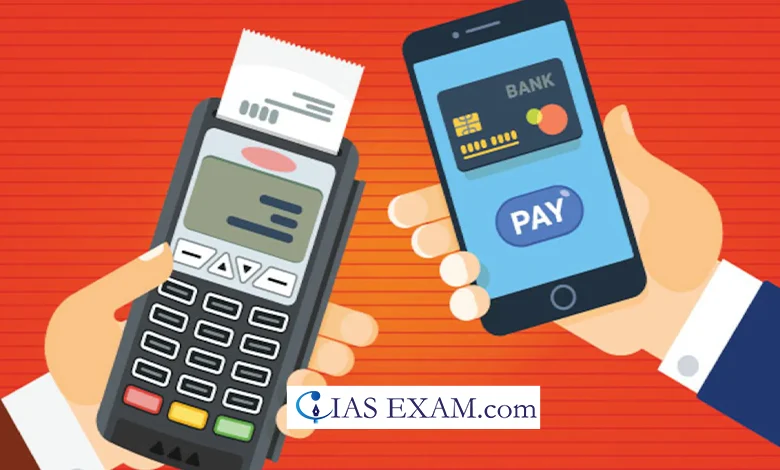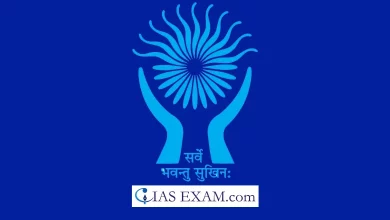Daily Current Affairs for UPSC
RBI Releases Draft Guidelines for Payment Aggregators (PAs)
Syllabus: Indian Economy [GS Paper - 3]

Context
Recently, RBI issues draft directions on Payment Aggregators (PAs) for the purpose of regulating offline PAs which are operating at physical point of sale and revision and updates to KYC to strengthen the payment ecosystem.
Key Highlights of the Draft Directions of RBI
- The RBI has published the draft norms for supervision and regulation of PAs (Payment Aggregators), which is a major leap towards the governance of the digital payments ecosystem. These rules have many rules from in-situ, such as Personal Assistants who are required to satisfy both their net worth condition and still obtain a licence.
- As far as the second circular is concerned, one can mention the fact that it provides for changes and updates as well as, for example, KYC (Know Your Customer) protocols implementation, due diligence requirements for merchants, and the way how escrow accounts function. Such steps emphasise the unshakable dedication of RBI to creating a safe, transparent, and efficient system of payments which can change with time so as to meet the needs of different stakeholders while battling risks and vulnerabilities.
Who are Payment Aggregators (PAs)?
- Payment Aggregators (PAs) work as intermediaries, integrating multiple payment systems that operate under a single roof to the conceivable point that merchants and customers needn’t waste time trying to identify the right payment channel to make their payment.
- PAs power on the provision of e-commerce trading, smartphone purchases, and as well online bill payments by serving as a means for financial inclusion and economic growth. On the one hand, such digital assets (cryptocurrencies) have been gaining traction. Nevertheless, their growing importance also requires strong regulatory control in order to keep them in line with consumer protection norms, data protection rules, and financial safeguards, eliminating the risks of fraud and cybersecurity breaches.
Role of RBI
- The RBI published Draft Directions on Regulation of Payment Aggregators (PAs) on 16th April 2024. The RBI is inviting feedback on the draft till April 30, 2024.
- The Area of Reiding is DPA Operating at Physical Point of Purchase that were not regulated before.
- Amendments supplement existing rules with the particular issues as the creation of rules establishing the liability of additional merchants and the service of payments through designated merchant accounts.
- Entrance criteria for both physical and digital PAs are convergent, with an application process, which will finish on 31/03/2025.
- Defined broadly, e-trading means client contact both to online and offline operations correspond with the phrase “merchant interface”.
- Neither the demand deposit accounts (DDA) nor the balances maintained by the participants of the payment account activities are part of the escrow funds.
- Direct cash transactions were eliminated. Fund transfers were restricted under these requirements. Therefore, civil liberties were negatively affected.
- The business people are grouped in three categories known as turnover, GST registration and KYC procedures based on the legislation.
- In order to keep merchants accountable, the PAs carry out the due diligence on merchant’s activities and do tracking to prevent money laundering.
- Such engagement, however, can be carried out with proper due diligence and monitoring of non-bank PAs under the condition.
- The corresponding rules apply to all transactions involving two or more PAs, the card data storage ban which will be effective on August 1, 2025.
Conclusion
- The RBI (Reserve Bank of India) aims to scrutinise Payment Aggregators who so far managed to do offline transactions that went without being monitored. It ensures fairness and admiring standards for online interactions and the remanence stores the same. At the same time, the recent statement made by ICAO includes the entire PA. Sharing accounts provides convenience, but the termination policy must be specified.
- This gives our customers the option of paying ahead and also gives us the chance of differentiating ourselves from our competitors who offer Cash-on-Delivery services. Restrictions on transactions to prevent sellers from falling victim to theft, though such actions may have the opposite effect of increasing desktop use. A quicker checking on shop owners ensures adherence and integrity.
Source: The Hindu Businessline
Also Read: RBI’s Revised Guidelines for Lenders in AIFs
UPSC Mains Practice Question
Q.Discuss the significance of the Reserve Bank of India’s recent draft circular on regulating Payment Aggregators (PAs) in the context of enhancing transparency and security in India’s digital payments ecosystem.





.png)



